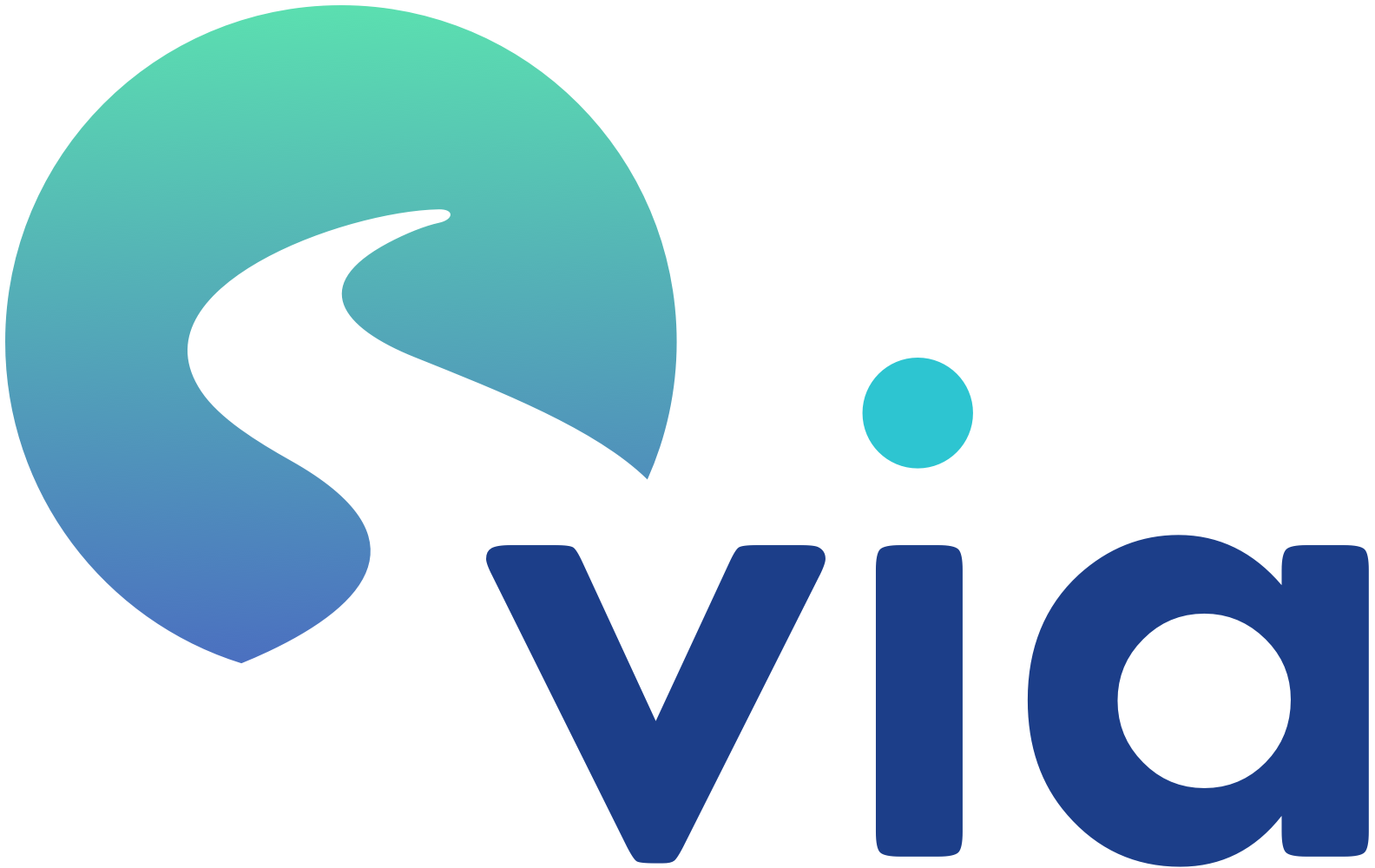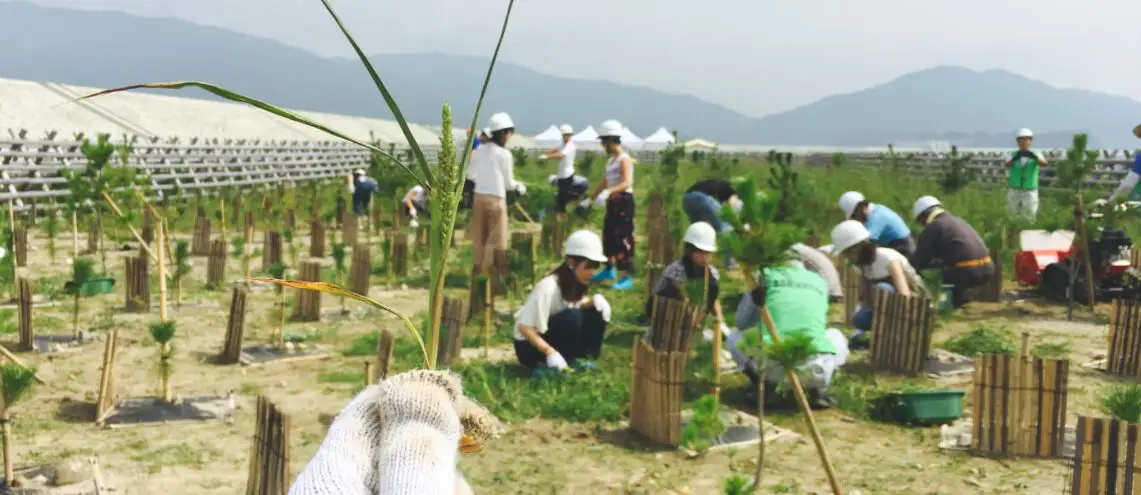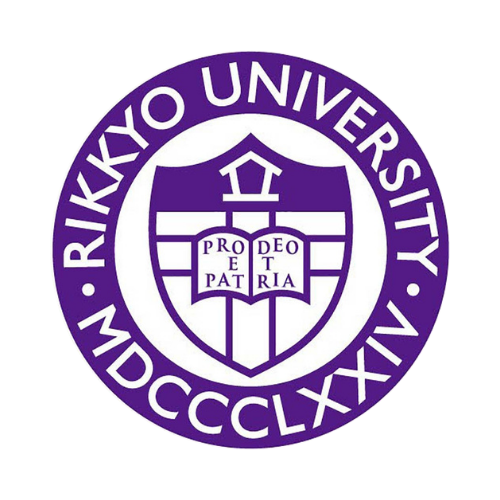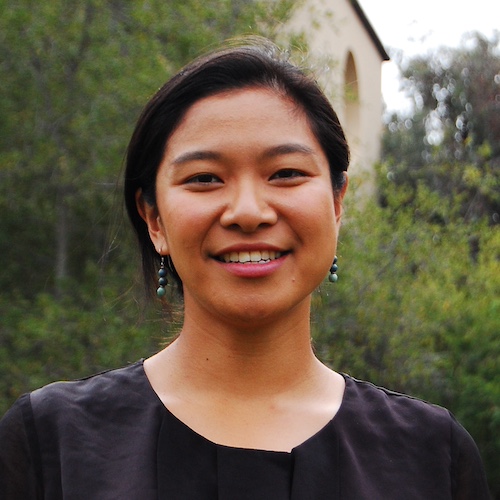Rikuzentakata Project
Rikuzentakata Project
Overview
Exploring Sustainability in Rural Japan
US university students are invited to join a seven-day project-based learning program with students from Rikkyo University (Tokyo, Japan), The University of Hong Kong, and the National University of Singapore to explore the city of Rikuzentakata, which was devastated by the 2011 earthquake and tsunami. Through guest speakers, site visits, immersive activities, and team projects, participants will learn about the community’s journey of recovery and vision of creating a more sustainable future. Participants will discuss the United Nations’ Global Goals for Sustainable Development (SDGs) and collaborate cross-culturally to present their reflections on sustainable community development.
By participating in this experiential learning program, you will have the opportunity to:
- Deepen your understanding of social issues in rural Japan through the lens of disaster recovery
- Develop a global perspective on community implications of disaster recovery
- Explore SDG 11: Sustainable Cities and Communities and consider how its targets may be applied in different contexts to develop more sustainable communities
- Build connections with peers from the US, Japan, Hong Kong, and Singapore
Information Sessions
- February 20 (Fri) 12:00 PM US Pacific Time – register to join on Zoom
- February 20 (Fri) 5:00 PM US Pacific Time – register to join on Zoom
- April 3 (Fri) 12:00 PM US Pacific Time – register to join on Zoom
- April 3 (Fri) 5:00 PM US Pacific Time – register to join on Zoom
Program Costs
- VIA Program Participation Fee: $1,800 USD
- Additional estimated costs (not included in fee): $1,860+ USD
- Total estimated cost to participate: $3,660+ USD
Please review our Payment and Participation Policies
What’s included:
- International travel medical insurance
- Accommodations for 4 nights in Rikuzentakata
- Breakfasts and some group meals in Rikuzentakata
- Shinkansen (bullet train) transportation between Tokyo and Rikuzentakata
- Local transportation in Rikuzentakata for program activities
- 24-hour on-site support from VIA and Rikkyo staff
- Training, lectures, and mentorship from peers and experts, including Rikkyo University faculty, VIA staff, and Rikuzentakata community members
- International airfare (as low as $1,000 USD, departing from SFO)
- Passport and visa fees, if applicable (approx. $160 USD)
- Accommodations for 4 nights in Tokyo (approx. $400 USD)
- Local transportation in Tokyo, including to/from airport and within city (approx. $50 USD)
- International phone plan or travel SIM card (approx. $100 USD)
- Some lunches and dinners (approx. $150 USD)
- Optional activities and personal shopping
- Personal health care expenses
Priority Deadline: April 12, 2026
Individuals who submit their application by this deadline will receive priority consideration for financial need-based program fee reductions.
- Application Deadline: April 12, 2026 (11:59 PM US Pacific Time)
- Online Interviews: April 15-23
- Notification of Results: April 24
- Confirm Participation: May 1
Final Deadline: May 31, 2026 (or program is filled)
We will continue to accept and review applications as they are received until May 31, 2026, or the program is full, whichever comes first.
- Application Deadline: May 31, 2026 (11:59 PM US Pacific Time)
- Online Interviews: June 3-11
- Notification of Results: June 12
- Confirm Participation: June 19
Program Timeline
Participants are expected to arrange their own transportation to ensure they arrive in Tokyo on the first day of the program and stay through the final day of the program. You are responsible for any additional travel and lodging expenses if you choose to arrive prior to the program start date or stay after the program end date.
Pre-Departure – May-July
- Complete pre-departure tasks, including travel preparations, reviewing introductory material about the program themes, and connecting with other participants.
- Pre-departure orientation call for US students will be held in late July / early August.
Travel & Tokyo Orientation – August 22-23
- August 22* (Sat) – Arrive in Tokyo
- August 23 (Sun) – Orientation and team-building at Rikkyo University’s Ikebukuro campus in Tokyo
*Individuals departing from the US should leave no later than August 21, as flying to Japan includes crossing the international dateline.
Rikuzentakata – August 24-28
- Shinkansen (bullet train) to/from Tokyo and Rikuzentakata
- Tour of Rikuzentakata city
- Visits with local enterprises & nonprofits (past site visits include Riku Cafe, Marugoto Rikuzentakata, Waiwai Cafe, and Yagisawa Shoten soy sauce company)
- Intercultural learning and collaboration with peers from Japan, the US, Singapore, and Hong Kong
- Presentations and community celebration
Tokyo Wrap-up & Departure – August 29-30
- Teams present projects to Rikkyo University faculty and staff
- Program reflection and conclusion
- Departures from the afternoon on August 30*
*When flying directly from Japan to the US, you will arrive on the same date as your departure.
Eligibility Requirements
Who should apply: US undergraduate and graduate university students 18 and older (summer graduates and fall rising freshmen are also eligible). US citizenship is not required.
In order to be eligible to participate in this program, you must:
- Be at least 18 years old by the program start date.
- Be a current student at a US university (including fall first-year students), or a recent (spring) graduate in the same calendar year as the program.
- Be eligible to receive travel authorization to enter and remain in Japan for the duration of the program.
- Be able to provide proof of vaccination and/or health status required for entry to Japan or re-entry to your home country that is in effect during your dates of travel. It is your responsibility to confirm which health-related regulations may apply to you.
- Be willing to undergo diagnostic tests if experiencing symptoms of a communicable illness considered serious by public health officials or if required for site visits by the host institution. A positive test or inability to meet requirements for a site visit may limit your ability to participate in program activities and/or may necessitate self-isolation during the program.
- Disclose any life-threatening or significant allergies, dietary restrictions, medical conditions or illnesses, and physical limitations as they relate to the program and listed activities.
- Maintain health insurance coverage for the duration of the program. Enrollment in an international travel medical insurance plan is included in the program fee. If you decline to enroll in insurance offered by VIA, you must submit proof of insurance valid for the program location and duration to VIA staff before your departure.
- Be committed to participating in all scheduled sessions and completing all activities, both before and during the program, including activities to be completed outside of group meeting times.
Application Content
In the program application, we invite you to share your background, interests, and motivations for joining this program, so that we can support you in your personal and professional journey.
Confidentiality Statement
The information provided in the application form is confidential and will only be accessible to VIA staff to communicate with you regarding your application and to assess your eligibility and qualifications as a candidate.
Generative Artificial Intelligence (AI) Usage Statement
VIA reserves the right to use AI tools to evaluate information submitted by applicants and participants, as well as tools that detect AI-generated content. VIA will take all reasonable precautions to secure confidential information from unauthorized access, use, disclosure, or exposure to AI tools that utilize user data to train models.
By submitting information to VIA, you acknowledge that you have carefully read this statement and understand that your information may be exposed to AI technology and assessed for AI-generated content. You also affirm that the information you are submitting to VIA is factually accurate to the best of your knowledge and authentically represents your identity, capabilities, and intentions.
Application Content
Before you get started:
The application form is hosted on Airtable and requires a login for security purposes. If you already have an Airtable account, you can use your existing account login information. If you haven’t used Airtable before, you will need to create an account (email and password or use your Google account or Apple ID). The online application is a two-step process:
Step 1: VIA Applicant Profile
You can create or update your VIA Applicant Profile at any time. You must be logged in with the same Airtable user account to access an existing profile. If you log in with another Airtable account, you will need to create a new profile. Your profile will be connected to any current or future VIA program applications, so you won’t need to provide this information each time you submit an application. After saving your profile, a copy will be sent to the email address(es) associated with your Airtable account.
- Personal Information
- First Name
- Last Name
- Preferred Name
- Full Name in Native Characters
- Gender
- Date of Birth
- Citizenship
- Current Place of Residence
- Contact Information
- Email Address
- [Optional] Alternate Email
- [Optional] Phone Number
- [Optional] Messaging App Contact
- Referral Information
- How did you learn about VIA?
- Personal recommendation from VIA Contact
- Professional Information
- Current Status (working, studying, other)
- Current or Most Recent Academic Institution or Company
- Current or Most Recent Degree Program or Position
- [Optional] LinkedIn or other online profile URL
- [Optional] Resume / CV
Step 2: Program Application
You will receive a link to the Program Application form after creating or updating your VIA Applicant Profile. The application form is one page, so please be prepared to complete all questions to submit your application. Closing the application window before submitting may result in lost data.
- Self-Introduction and Goals
- Please introduce yourself and share your motivations for joining the program. What are you hoping to learn?
- Sustainability and Community Development
- This program focuses specifically on UN Sustainable Development Goal #11, “Sustainable Cities and Communities.” Read the brief descriptions of the sub-targets of SDG 11, and share which targets you feel a connection to or want to explore further, and why.
- Japan and Other Cross-Cultural Experience
- Describe your experience and/or interest in learning more about Rikuzentakata, a rural Japanese community affected by the March 2011 earthquake and tsunami. What are some things that you are hoping to learn or practice by engaging with peers from different cultural backgrounds? Please also share any past experiences and perspectives on cultural exchange.
- [Optional] Program Fee Reduction: Applicants who wish to be considered for a limited number of program fee reductions are asked to complete the following additional questions:
- How would you use this VIA program experience to contribute to a positive impact in your school, company, and/or community? (may be submitted as a written or video response)
- If you are accepted to the program but do NOT receive a program fee reduction, would you still be able to participate?
Tip: Before submitting your application, we recommend printing a copy for your records. After filling out all the questions on the application form, click the [···] icon in the top-right corner to print.
Step 3: Recommendation Form
Fee Reduction Applicants Only
A recommendation letter must be submitted on your behalf from someone who knows you through academic, community, or professional contexts and can speak to your character and suitability for this program. Family members MAY NOT provide a recommendation letter. Recommendation letters must be submitted by the letter writer through the recommendation form by the application deadline.
NOTE: Please ensure your letter writer has your email address so that you can receive a confirmation when the letter is submitted.
Discovery Interview
Applicants who pass the initial screening round will be contacted after the application deadline to schedule an interview with VIA staff over Zoom.
Funding Opportunities
If you are considering this program but are concerned about the cost, we encourage you to research funding for international programs available through your university, government scholarships, international scholarship and grant-making organizations, and personal fundraising.
Financial Need-based Discounts
VIA strives to make our programs accessible to participants regardless of financial circumstances. We may be able to offer financial need-based discounts on a case-by-case basis, depending on funding availability. If your application is selected for the interview round, please discuss your financial situation with the Program Director during your interview. Please know that we will not require any financial disclosure statements. We trust that you are reporting your financial circumstances honestly.
General
What makes the VIA experience unique?
VIA has over 60 years of experience connecting Asia and the US, and has facilitated programs for students from Asia in Silicon Valley since 1977. Our participants are able to stay connected to an international community of peers throughout their careers. VIA’s extensive alumni network allows past and present participants to strengthen their personal and professional development. VIA also provides opportunities to contribute to meaningful impact with local organizations that serve a diverse range of communities and needs.
Do I need to speak Japanese?
No. Program sessions will be conducted in English. However, if you are studying Japanese, this is a great opportunity to practice with native speakers in both formal and informal settings.
Who leads the program activities?
VIA staff and Rikkyo University faculty, as well as on-site coordinators and guest speakers from the local community.
Application Process
How long will it take to complete my application?
It depends. The personal information section should only take 5-10 minutes to fill out. The second part of the application asks you to write several short essays , which may take 1-2 hours. The application is designed to help us get to know you better, but is also intended for you to reflect on what is really important to you and what you want to get most out of this experience. We encourage you to spend some extra time to think deeply about your answers. If you can’t finish your application all at once, you can save it and complete it at a later time.
What information do I need to complete my application?
For the first part of the application, you will need to provide personal information (name, nationality, year in school) and contact information (email, phone number, etc). For the essay questions you will be asked to provide information about yourself and why you are interested in joining the program. The final step will be an online interview with the Program Director. If your application is selected, the Program Director will follow up with you to confirm the interview time.
How should I prepare for the interview?
- Review the answers to your essay questions and be prepared to speak about them in more depth.
- Double-check your interview time and plan to be ready a few minutes early in a quiet place where you will be free from distraction.
- Test your internet connection, run any updates on your device and apps, and make sure your microphone, headphones, and camera are working properly. Of course, we realize there are technical difficulties sometimes, so we will work with you to make sure these are resolved.
When will I know if I’m accepted?
We will send out results approximately one week after your interview.
What happens after I’m accepted?
You will receive information about the next steps, including travel preparations, insurance enrollment, etc. You will also be invited to join an online group with other participants, so that you can get to know each other better. In addition, you will receive some materials to help you prepare for the program.
Participation Expectations
What do I need to bring with me?
We recommend that you pack one small suitcase and one small bag only. You should be able to carry your own luggage around one city block and up and down stairs. Japan can be quite hot, humid, and rainy in the summer, so we recommend bringing lightweight sun-protective clothing and rain gear (a light shell jacket, umbrella, etc). You will be walking a lot, so comfortable shoes are highly recommended. It is also customary to not wear outdoor shoes inside, so you may want to bring a pair of in-door only shoes.
Other important things to bring are: prescription medication, copies of your travel and insurance documents, and adapters to charge your electronic devices. You will receive a detailed packing list to aid you as you prepare for your travels.
Should I be worried about safety?
VIA staff make participants’ safety and well-being their highest priority at all times. All participants are required to have travel medical insurance, which can provide coverage for medical and other emergencies. We will arrange or plan transportation routes and accompany participants to all organization visits.
Violent crime is not common or prevalent in Japan, even in Tokyo. However, as is true for most major cities, one should take a common-sense approach to safety precautions as one would anywhere else. Carry a cell phone with international coverage so that you can access maps and call VIA staff in case you get lost. Japan is still a very cash-based society, so carrying large amounts of cash isn’t unusual. This may be a new experience for you, though, so be careful to keep track of your cash and other belongings at all times.
Do I need a visa?
If you hold a passport from the US (as well as Canada, Mexico, or any other visa-exempt country), you do not need a visa for a short-term stay in Japan.
Do I need travel medical insurance?
For safety purposes, all participants are required to maintain medical insurance coverage during the program. If you decline to enroll in insurance offered by VIA, you must submit proof of insurance valid for the program location and duration to VIA staff before your departure.
What will happen if there is a problem or emergency during the program?
For minor emergencies (small injuries, illness, etc.), program staff will take care of the participants’ immediate needs and accompany them to the hospital if a hospital visit is necessary. For major emergencies (serious injury, illness, or accidents), VIA staff will ensure you receive the care that you need, and notify your emergency contacts.
For program policy violations, VIA will discuss the incident with the participant(s). Depending on the severity, the participant(s) will receive a warning or, if it is a very serious problem, the participant(s) may be sent home early at their own expense.
What about free time? Will there be opportunities to explore on my own during the program?
The program is designed to be an intensive experience in order to maximize participant impact and learning. However, we understand that proper rest and time off are also beneficial to student learning, bonding and overall well-being. You will have some time for exploration and self-directed activities during the program.
Where will I stay during the program?
While in Tokyo, you will stay at a hotel in Ikebukuro, near the Rikkyo campus. Accommodations in Rikuzentakata have included hotels, guest houses, and homestays, depending on availability.
Can I travel somewhere else before or after the program?
Yes! You are welcome to go somewhere before and after the program, as long as you arrive in Tokyo on the first day of the program and depart no sooner than the final day of the program.
Application Information
Program Dates:
Application Deadline:
Testimonials from Past Participants
Participant from Boston University
You’ve been given the opportunity to fly across the world, to bond with warm and intelligent students, and have the experience of seeing how communities (and individuals within them) recover and grow from natural disasters. I met friends I plan to stay in touch with, learn from, and see again throughout the rest of my life. I developed a love for Japan and its the amazing communities I would’ve never discovered. If you are in the right place physically and mentally, I would say you should absolutely take the risk and go- I couldn’t be more happy that I did.
Participant from Rikkyo University, Tokyo
陸前高田プログラムは単に震災について学ぶだけではなく地域コミュニティの在り方、存在意義などを多方面から知ることができました。これらの問題は身近でありながら普段の生活で考えることがあまりありませんでしたが、私はこのプログラムを通して自分の地域について考えるべきだと気づかされました。また、海外の学生との交流はとても刺激的でした。彼らの考えや発言は論理的で筋が通っており、とても説得力のあるものが多かったです。それらはもっと頑張ろうというモチベーションにつながりました。(The Rikuzentakata program not only allowed us to learn about the earthquake disaster, but also gave us a chance to learn about the state and significance of the local community from many different angles. Although these issues are familiar to me, I have not often thought about them in my daily life, but through this program, I realized that I should think about my own region. Also, interacting with students from overseas was very stimulating. Their ideas and statements were logical, made sense, and were often very persuasive. They motivated me to work harder.)
Participant from University of Knoxville, Tennessee
Though it may not seem like it, there is genuinely so much to be learned about both yourself and the world in Rikuzentakata. I joined the program with the main goal of learning more about sustainable development, but I came away with so much more. New friends, new ideas about myself and the world, and new experiences were all found in Rikuzentakata, and I truly believe that if you are even slightly interested in this program, you should give it a shot!



